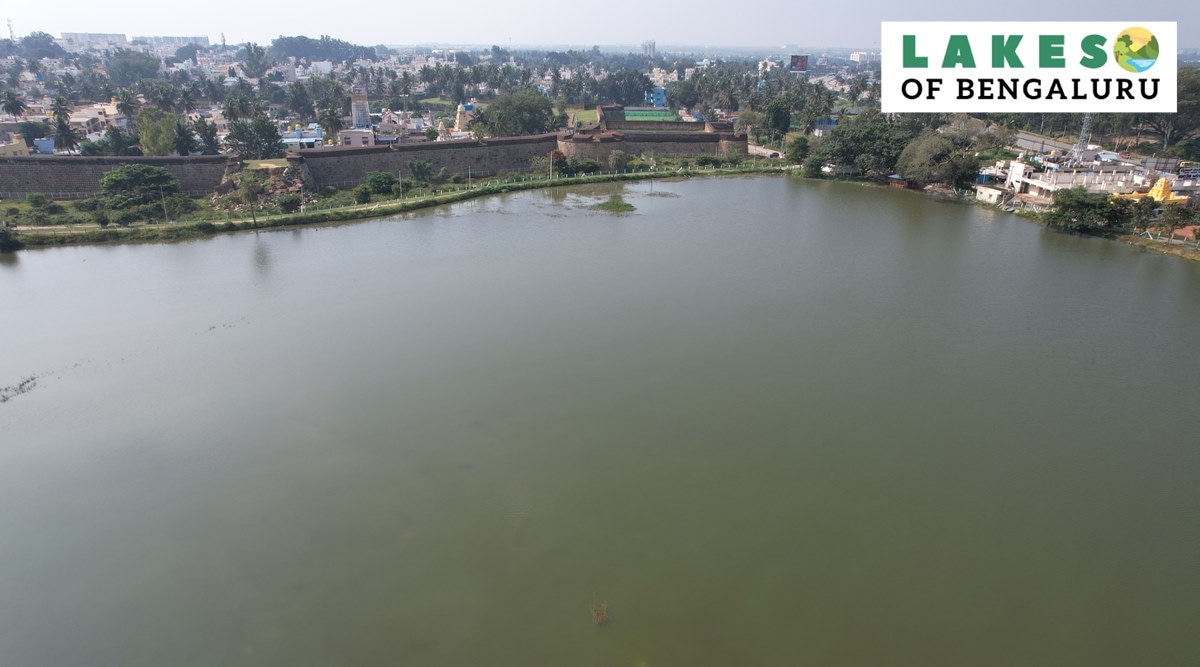Stay updated with the latest - Click here to follow us on Instagram
Lakes of Bengaluru: Now restored, this lake has a Tipu Sultan connect
For the last few years, the Devanahalli Lake was not only full of silt but also witnessed entry of raw sewage, dumping of garbage and invasive growth of weeds.
 The lake has a water carrying capacity of over 535 million litre of water.
The lake has a water carrying capacity of over 535 million litre of water. Located in the northeastern part of Bengaluru, the Devanahalli Lake is spread over 17 acre and has traditionally been used by the local people to meet their irrigation demands. Devanahalli is synonymous with the Devanahalli Fort, the birthplace of Tipu Sultan. To the north of the fort lies the lake which, according to the locals, is more than 200 years old.
For the last few years, the lake was not only full of silt but also witnessed entry of raw sewage, dumping of garbage and invasive growth of weeds. Due to the entry of untreated sewage into the lake, the growth of weeds accelerated. Since there was no fencing around the lake, the waterbody was encroached.
However, earlier this month, the Kennametal India Limited, a subsidiary of the Kennametal Inc., in partnership with the United Way India (UWI), a non-profit organisation, announced that the restoration of the lake is complete. The lake restoration work was taken up seven to eight months ago. The Karnataka government had extended its support to the project in terms of giving necessary permissions to carry out the rejuvenation while Kennametal India Limited, under its CSR initiative, contributed approximately Rs 50 lakh for the lake restoration project.
The lake has a water carrying capacity of over 535 million litre of water.
Jayanti Shukla, CEO, United Way India said, “As philanthropy partners of Kennametal India Limited, we believe that this initiative will help in water conservation and enhancement of natural flora and fauna of the lake. The decision to take up the restoration project was probably around seven to eight months back but the actual work started six months ago.”
Shukla added, “This lake has a historical value and it was in a terrible state. It was full of silt, overgrown weeds and was receiving sewage water. We believed that the lake’s restoration would help the community living around it and add value to the environment. In the last six months, we have been able to restore the lake into something which looks good and can benefit the local community.”
“One of the things we are careful about is that we are working within the system. We got the approval of the forest department and the local community. While the lake is spread over 17 acre, with the encroachments and the silt in the lake, it was reduced to half. The lake is rain-fed. We now have checks and balances to ensure sewage water does not contaminate the lake,” she added.
Rajiv Ranjan, Additional Principal Chief Conservator of Forests, Karnataka Forest Department, said, “With lakes getting destroyed at a very rapid rate, it is the need of the hour to take actions that can enhance the green cover of Bengaluru.”







